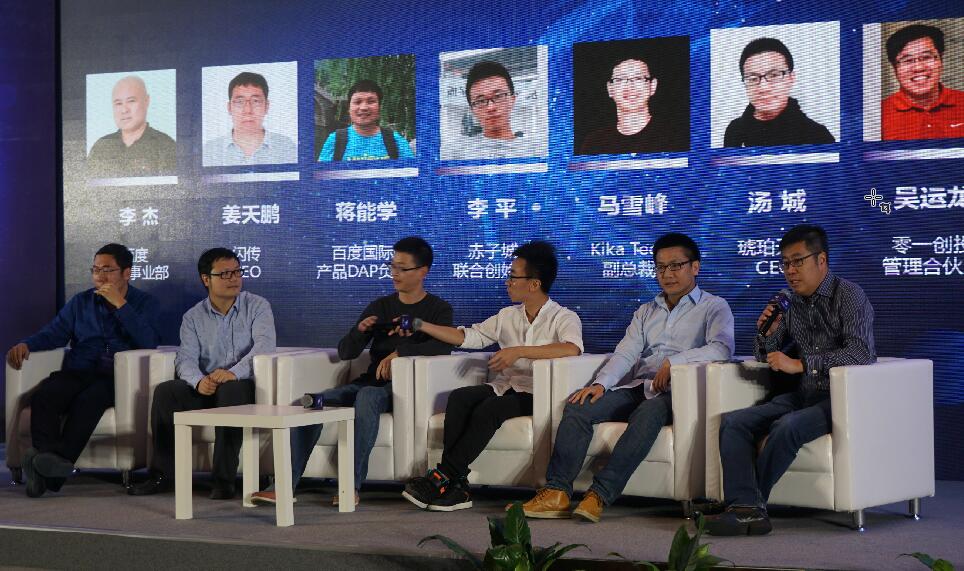


With their hands tied in a saturated domestic market, and dwarfed by dominant players, some Chinese app developers are attempting to carve out a place for themselves in overseas markets.
Since 2011, China has been the largest mobile Internet market in the world. In 2015, the number of Internet users in China reached 780 million, which is 57 percent of its population and twice the U.S. population. But in terms of how much apps impact people’s daily lives, China goes even further. The country’s smartphone users downloaded a whopping 185 billion apps in 2014, 59 percent of all downloads worldwide, a testimony to their frenetic usage. This is perhaps unsurprising, as China’s 35 million programmers have created apps that cater to an impossibly wide variety of human needs.
Through years of practice, Chinese app developers have accumulated rich technical and market experience. But a mature market always means powerful players rise to push out the rest. A few domestic Internet giants like Alibaba, Tencent and Baidu own the country's largest SNS, shopping and payment apps. Dominant apps in weather, gaming, taxi-hailing, video-streaming and image-and-video have also emerged.
“Luckily, some smaller players have been acquired. Most often, they just die,” reads the frank assessment of a research report by APP Annie. This is why some Chinese app makers have begun to eye overseas markets, making their way to greener pastures. These developers envision an opportunity created by the uneven development of the global market, especially in emerging economies; they are mixing their China-based experience with local traits to make a fortune.
SHAREit is one of these companies. The SHAREit app enables users to share files between multiple operating systems – Android, iOS, Mac, Windows, WinPhone and PC – with no need for conversion. The app sends a wireless signal to the recipient so the files can be shared without an Internet connection. The app has been given a lukewarm reception in China, but it has become a must-have in India. Boasting more than 100 million Indian users, its popularity can be matched only by Whatsapp and Facebook’s app.
“Our product fills a void in the Indian market, and to some extent all emerging markets. India’s telecom infrastructure is sort of lagging behind. Few public Wi-Fi spots exist, and 3G normally works at the speed of 2G. That’s why our connection-free transmission stands out,” said Yan Fei, CEO of SHAREit. It’s true, by 2015, only 22 percent of adults in India had access to the Internet.
Yan’s view was echoed by his Chinese counterpart and rival, Jiang Tianpeng, CEO of Xender, an app that is similar to SHAREit and also prospers in the Indian market. At a seminar on Oct. 27 in Beijing, Jiang shared with guests a picture of an Indian man who set up his computer on the street and charged passersby to copy files between gadgets on his computer, or load music, videos and books.
“Everywhere, human needs for entertainment and spiritual well being are the same,” he added. SHAREit and Xender require low mobile memory usage and act as a bridge acrossoperating systems, and that’s why of budget users with entry-level phones in India choose them.

Chinese app developers attend a a seminar on Oct. 27 in Beijing. [Photo/People.cn]
Due to geographical and economic reasons, most small app developers in China first test the foreign market in Southeast Asia. India and Indonesia are top destinations, both boasting a colossal smartphone user base. Thailand and the Philippines have also been proven ideal spots.
But still, others want to take on a wider global market through more innovative creation. DailyCast, an Android video aggregator, is one of these developers. The company’s CEO, Ye Zhewei, led his team to create the app with the help of Chinese startup incubator 36Kr in 2015, after he resigned as a programmer from Chinese Internet giant Baidu. DailyCast picks the latest viral videos from YouTube, Facebook, Vimeo, Dailymotion and more, and curates personalized recommendations for its users.
Although there are only a few video aggregation apps for Android systems, “the competition remains fierce because users are accustomed to watching what’s buzzing on giants like Facebook and Instagram,” explained Ye. This is where DailyCast came up with their creative idea.
“Just like the Matthew Effects, the rich get richer. YouTube celebrities with more than 10 million fans are the most successful, while smaller accounts, including some really talented ones, do far less well,” Ye said. Ye and his team therefore made video stars with 500,000 to 5 million followers their focus. His team has signed about 20 such video celebrities to provide original content for the app, and they plan to continue doing so in further overseas expansion.
One year after its launch, DailyCast now has 500,000 users, more than 30 percent of which are from developed Western countries. More than half are the coveted demographic of English-speakers born between 1984 and 1995, according to Ye. An impressive number, indeed.
Another dogged innovator is NewBornTown from Beijing. NewBornTown was founded in June 2013 by four programmers. Since the very start, they dedicated themselves to capturing the overseas market, believing that path to be the only way a small startup could “make it big” in the future. By 2015, the company’s star product, Solo Launcher, became the fifth hottest launch made by Chinese developers on Google Play, boasting more than 10,000,000 users from mostly the U.S., India, Brazil and Russia.
“We created our Solo Launcher first, focusing on making it clean, smooth and small. Gradually, we inserted our own search function, news aggregator and cleaner into it. This part involved a lot of efforts to localize, everything from language to customer preferences. Meanwhile, we worked on innovative advertisement models,” said Liu Chunhe, CEO of NewBornTown. He also revealed that his team’s five apps on Google Play, including Solo Notifier, Solo Lock Screen, Solo Weather and Solo Battery Saver, now boast altogether 200 million users.
“We used to refer to Renren.com, a social networking site, as China’s ‘Facebook.’ We also referred to Baidu as China’s 'Yahoo.' But in the age of mobile Internet, we are seeing more Chinese players taking the lead,” Said Annabelle Long, founding and managing partner of Bertelsmann Asia Investments.
But Long also cautioned Chinese tech developers to pay close attention to localization. She warned developers "not to be carried away by a triumphant feeling while exporting Chinese experiences," but to "respect existing innovations in India, Iran, Indonesia, Brazil and Middle East", and deal with each case according to its own circumstances.
Jiang Tianpeng, CEO of Xender, raised another challenging issue. He cautioned content-based app developers to closely abide by each country’s patent laws.
 Fire brigade in Shanghai holds group wedding
Fire brigade in Shanghai holds group wedding Tourists enjoy ice sculptures in Datan Town, north China
Tourists enjoy ice sculptures in Datan Town, north China Sunset scenery of Dayan Pagoda in Xi'an
Sunset scenery of Dayan Pagoda in Xi'an Tourists have fun at scenic spot in Nanlong Town, NW China
Tourists have fun at scenic spot in Nanlong Town, NW China Harbin attracts tourists by making best use of ice in winter
Harbin attracts tourists by making best use of ice in winter In pics: FIS Alpine Ski Women's World Cup Slalom
In pics: FIS Alpine Ski Women's World Cup Slalom Black-necked cranes rest at reservoir in Lhunzhub County, Lhasa
Black-necked cranes rest at reservoir in Lhunzhub County, Lhasa China's FAST telescope will be available to foreign scientists in April
China's FAST telescope will be available to foreign scientists in April "She power" plays indispensable role in poverty alleviation
"She power" plays indispensable role in poverty alleviation Top 10 world news events of People's Daily in 2020
Top 10 world news events of People's Daily in 2020 Top 10 China news events of People's Daily in 2020
Top 10 China news events of People's Daily in 2020 Top 10 media buzzwords of 2020
Top 10 media buzzwords of 2020 Year-ender:10 major tourism stories of 2020
Year-ender:10 major tourism stories of 2020 No interference in Venezuelan issues
No interference in Venezuelan issues
 Biz prepares for trade spat
Biz prepares for trade spat
 Broadcasting Continent
Broadcasting Continent Australia wins Chinese CEOs as US loses
Australia wins Chinese CEOs as US loses